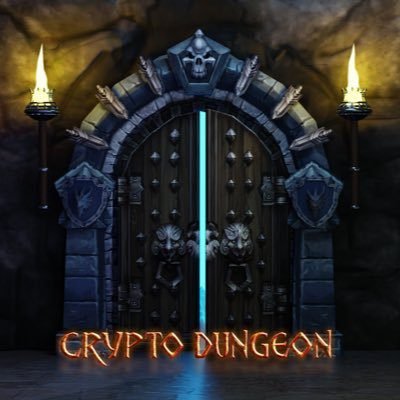Blockchain technology, the bedrock of modern digital currencies like Bitcoin, has evolved into a revolutionary framework that extends far beyond its initial financial application. At its core, blockchain is a distributed ledger technology that ensures transparency, security, and decentralization in various digital transactions and interactions.
What is Blockchain? A blockchain is a type of distributed ledger composed of a chain of blocks. Each block contains a collection of transactions that are recorded, verified, and cemented into the blockchain’s history. The key to blockchain’s security and trustworthiness lies in its decentralization: it is not stored in a single location or controlled by a single entity, but rather is maintained by a network of nodes (computers) working in unison.
Key Features of Blockchain:
- Decentralization: Unlike traditional centralized systems, blockchain operates on a peer-to-peer network, distributing data across multiple nodes, which eliminates single points of failure and ensures data integrity.
- Transparency and Immutability: Once a transaction is added to the blockchain, it cannot be altered or deleted, ensuring the integrity of the transaction history. This transparency builds trust among users.
- Security: Through cryptographic hashing and consensus mechanisms, blockchain ensures that each transaction is securely encrypted and verified, protecting the network from fraudulent activities.
- Consensus Mechanisms: Blockchain uses various consensus models like Proof of Work (PoW) or Proof of Stake (PoS) to validate transactions. These mechanisms ensure that all transactions are agreed upon by the network, preventing double-spending and ensuring data accuracy.
Blockchain and Cryptocurrency: Blockchain is best known for its role in supporting cryptocurrencies. It enables the existence of digital currencies like Bitcoin by tracking the ownership and transfer of these digital assets in a secure and decentralized manner. This eliminates the need for traditional financial intermediaries, streamlining transactions and reducing costs.
Applications Beyond Cryptocurrency: Blockchain’s potential extends far beyond digital currencies. Its ability to provide secure, transparent, and tamper-proof records makes it suitable for various applications:
- Smart Contracts: Self-executing contracts with the terms directly written into code, automating and enforcing agreements in a trustless environment.
- Supply Chain Management: Enhancing transparency and traceability in supply chains, ensuring product authenticity and ethical sourcing.
- Voting Systems: Creating tamper-proof and transparent voting mechanisms, enhancing the integrity of electoral processes.
- Identity Verification: Offering secure and immutable identity management solutions.
- Decentralized Finance (DeFi): Providing a framework for creating decentralized financial applications, challenging traditional financial systems.
Challenges and Future Outlook: Despite its numerous advantages, blockchain faces challenges in scalability, energy consumption (particularly with PoW consensus), and regulatory acceptance. However, ongoing innovations in blockchain technology are addressing these challenges, promising a more efficient, secure, and decentralized future.
Blockchain technology is continually evolving, with new applications emerging across various sectors. As this technology matures, it holds the promise of transforming numerous industries, making processes more efficient, secure, and transparent.
Conclusion: Blockchain technology represents a paradigm shift in how data is stored, verified, and transferred, offering a foundation for a more decentralized and transparent digital world. Its impact extends beyond cryptocurrencies, influencing sectors like finance, supply chain, and governance. As blockchain technology continues to evolve, it holds immense potential to revolutionize various aspects of our digital and physical worlds, making it an exciting area of ongoing development and innovation.

Blue Collar Crypto
About Course
Course Curriculum
Introduction to Cryptocurrency and Token Economics
Welcome to the first module of our course on Cryptocurrency and Token Economics. We begin
our journey with an overview of cryptocurrency, a revolutionary technology that has changed
the face of finance and investment.
Cryptocurrency, at its core, is a digital or virtual form of currency that uses cryptography for
security. It operates independently of a central bank, making it decentralized. This
decentralization is facilitated by a technology known as blockchain, which serves as a public
financial transaction database.
Market Capitalization
Why is market capitalization so important? Why are some tokens have a higher value than other? Find the answers to these question and more.
Utility Tokens vs. Security Tokens
Token Distribution and Airdrops
Understanding Token Distribution
The distribution of tokens is a critical aspect of token economics. It refers to how new tokens
are allocated and spread among the participants in a network. A well-planned token distribution
strategy can help ensure the long-term success and stability of a cryptocurrency project. Token
distribution is a complex and critical component of a blockchain project's success
Regulation and Legal Considerations in Cryptocurrency
Welcome to Module 6, where we will delve into the world of cryptocurrency regulations. As you journey deeper into the realm of cryptocurrency and token economics, it is crucial to understand the legal landscape that governs this innovative space.
Evaluating a Project by its Token Economics
In the world of cryptocurrency, understanding the underlying token economics of a project can be the difference between a successful investment and a costly mistake. This module will guide you through the key factors you should consider when evaluating a token.
Student Ratings & Reviews






